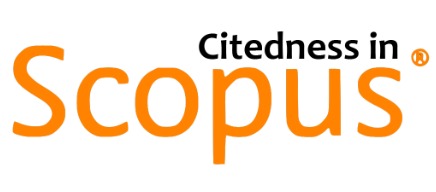Peran Guru PAI dalam Membentuk Kesadaran Hukum Berlalu Lintas Pada Siswa Kelas XII di SMK Texmaco Purwasari
Keywords:
Kesadaran Hukum, Peran guru, Komunikasi, PembelajaranAbstract
This research is based on the results of observations made by the author, namely
the number of victims of traffic accidents aged 16-30 years, many victims of
traffic accidents, traffic accidents in Karawang every year lose up to 500
children's lives under the age of 25 years, and including six students from class
XII SMK Texmaco Purwasari among them. The author assumes that the incident
was caused by the low awareness of students in understanding traffic laws. This
study aimed to find out the answers to assumptions regarding students'
awareness in understanding traffic laws and the role of teachers in shaping
traffic awareness, especially at SMK TEXMACO Purwasari. The approach used
by the researcher is a descriptive qualitative approach with theoretical analysis
of -O-R (Stimulus Organism Response) to identify that student awareness can be
formed through the communication of the role of the PAI teacher. This study
indicates that the role of the PAI teacher in shaping student traffic law
awareness includes: a) the first as an Informator, b) the dual role as an
organizer, c) the third role as a motivator. d) The fourth role is as a facilitator,
e) the fifth role is as a supervisor, f) the last role is as a class manager.
References
Asiah, N. (2009). Generasi Taat Hukum. Fikra Publika.
Gunawan, H. (2011). Pengembangan Kompetensi Kepribadian Guru. Alfabeta.
Harahap, E. S. (2018). Peranan orang tua Dalam Meningkatkan Partisipasi Anak Pendidikan 12 Tahun Di Desa Berangas Kecamatan Pulau Laut Timur Kabupaten Kotabaru. Muttaqien Publsihing.
Hasibuan, J. P. (2007). Kesadaran Hukum Masyarakat Terhadap Hukum Waris. UNNES Press.
Kuncorowati, P. W. (2009). Menurunnya Tingkat Kesadaran Hukum Manyarakat di Indonesia. Jurnal Civics, 6(2), 2.
Laksamana. (2010). Kesadaran Berlalu Lintas Untuk Mencegah Angka Kecelakaan. Jurnal Ilmiah Abdi Ilmu, 3(2), 2.
Manpan Drajat, M. R. E. (2015). Etika Ptrofesi Guru. Alfabeta.
Muhamad Ridwan Effendi, Rudi M. Barnansyah, S. N. (2019). Model Pendidikan Inklusif Pondok Pesantren. Laboratorium PAI FIS UNJ. https://seminars.unj.ac.id/icic/
Samrin. (2015). Pendidikan Agama Islam Dalam Sistem Pendidikan Nasional Di Indonesia. Jurnal Al-Ta’dib, 8(1), 104–105.
Wawancara Akmal Rizky. (n.d.).
Wawancara Alin Noor Kholis. (n.d.).
Wawancara Ayu Yuningsih. (n.d.).
Wawancara Bunga Ayu Lestari. (n.d.).
Wawancara Muhammad Soleh. (n.d.).
Wawancara Ridwan Wijaya Kusuma. (n.d.). In Oktober 2019.
Wawancara Taopik Paridi. (n.d.).
Yuliana, I. (2019). penggunaan kendaraan bermotor oleh anak dibawah umur. Alfabeta.
Published
How to Cite
Issue
Section
Copyright and Licensing Policy
Paedagogie: Jurnal Pendidikan dan Studi Islam allows authors to retain the copyright of their work and to retain publishing rights. By submitting and publishing with this journal, authors agree to the following terms:
-
Copyright remains with the author(s), and they grant the journal the right of first publication. The work is published under a Creative Commons Attribution-ShareAlike 4.0 International License (CC BY-SA 4.0), which permits use, distribution, and reproduction in any medium, provided the original work is properly cited and any derivative works are distributed under the same license.
-
Authors are allowed to enter into additional non-exclusive distribution agreements (e.g., posting to institutional repositories, publishing in books), with acknowledgment of the work's initial publication in this journal.
-
Authors are encouraged to disseminate their work online (e.g., in repositories or on personal websites) before and during the submission process to increase visibility and impact.
Paedagogie: Jurnal Pendidikan dan Studi Islam supports open access and affirms that libre access with a CC BY-SA license or its equivalent is the optimal approach for scholarly communication. We prioritize free and open dissemination while encouraging the reuse and adaptation of published content under fair and equitable terms.
You are free to:
- Share — copy and redistribute the material in any medium or format
- Adapt — remix, transform, and build upon the material for any purpose, even commercially.
- The licensor cannot revoke these freedoms as long as you follow the license terms.















